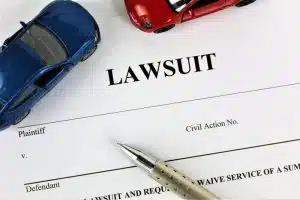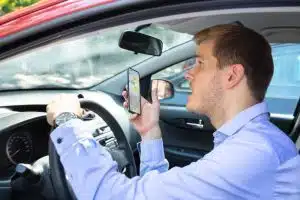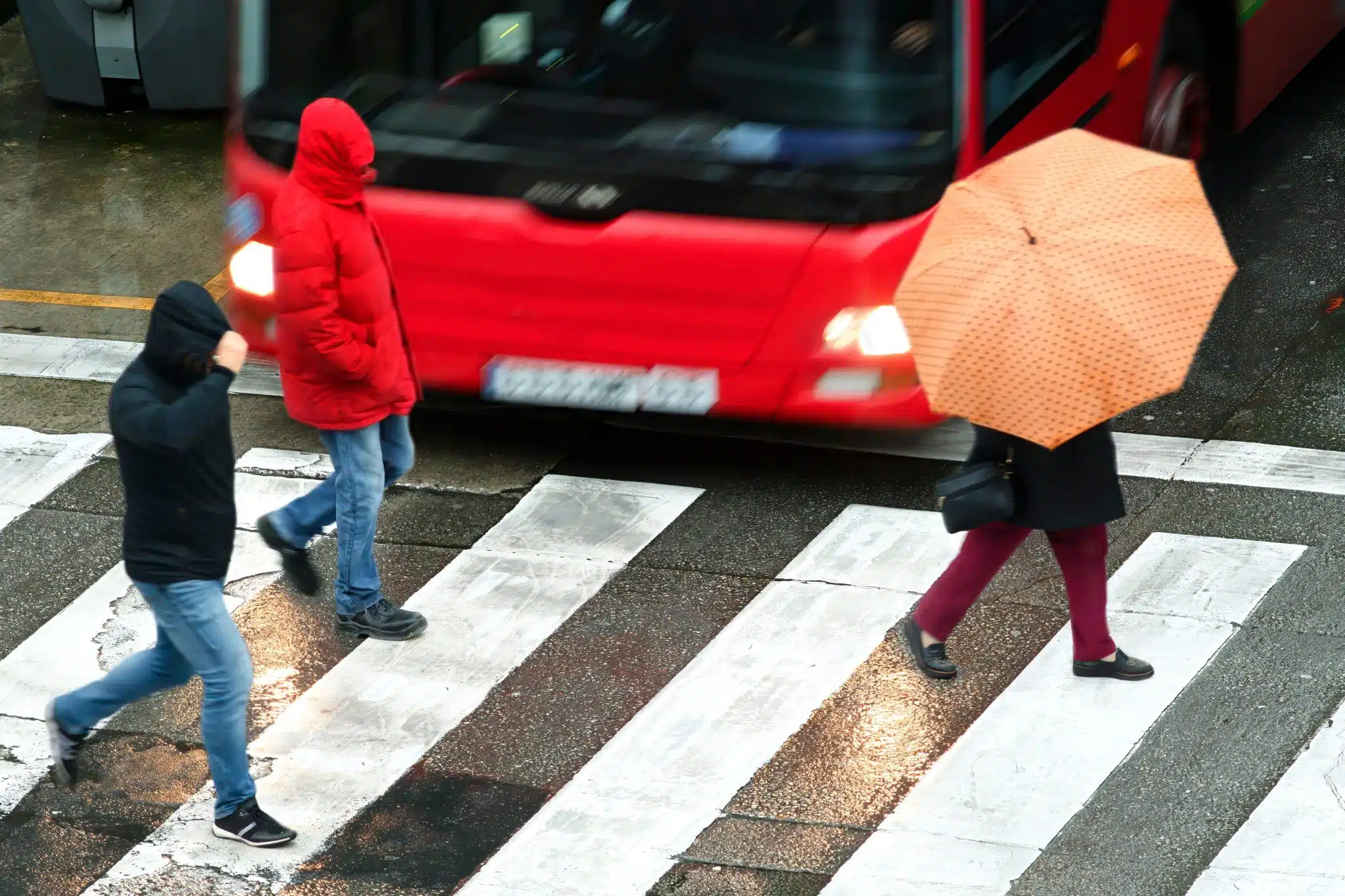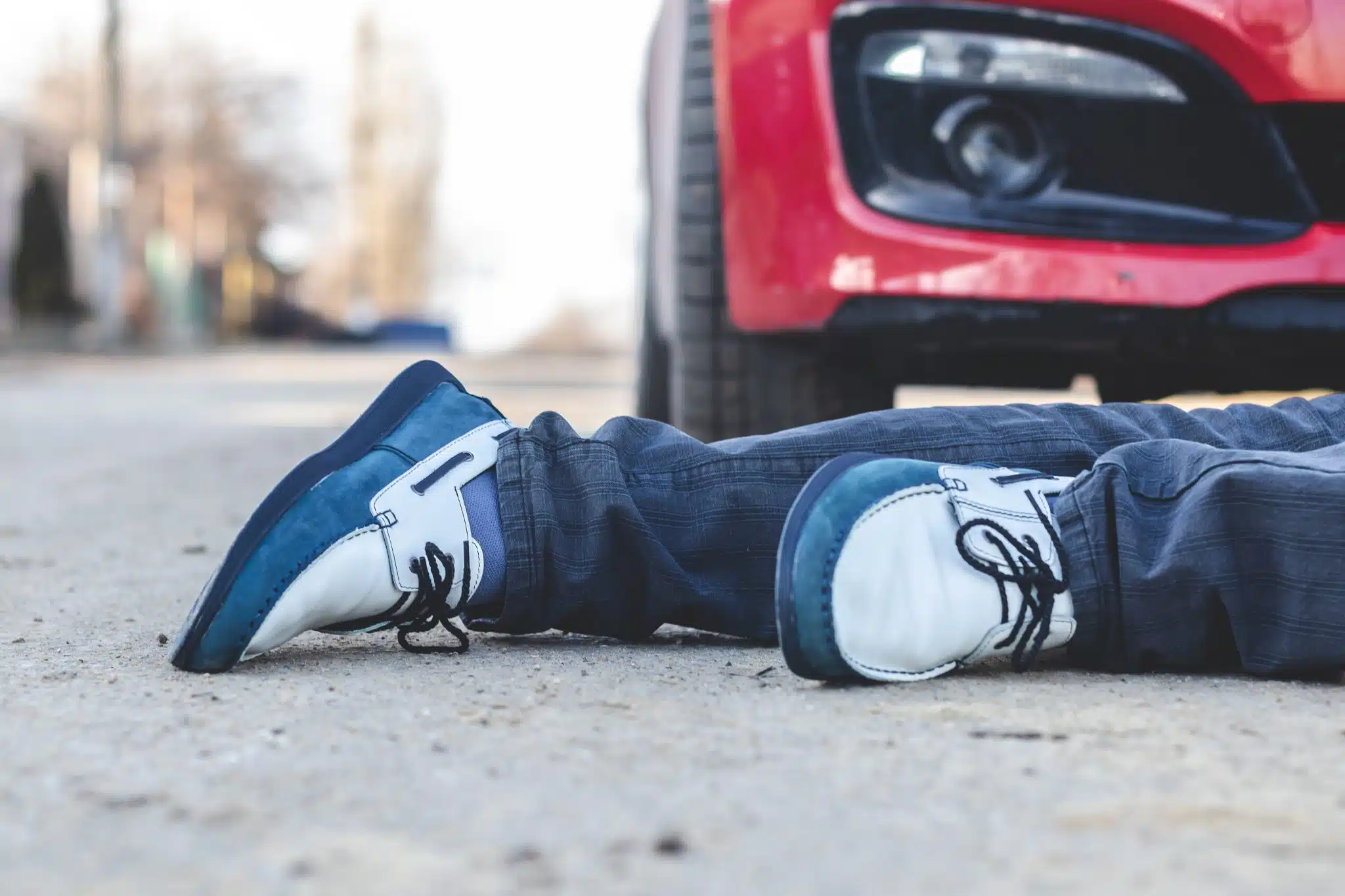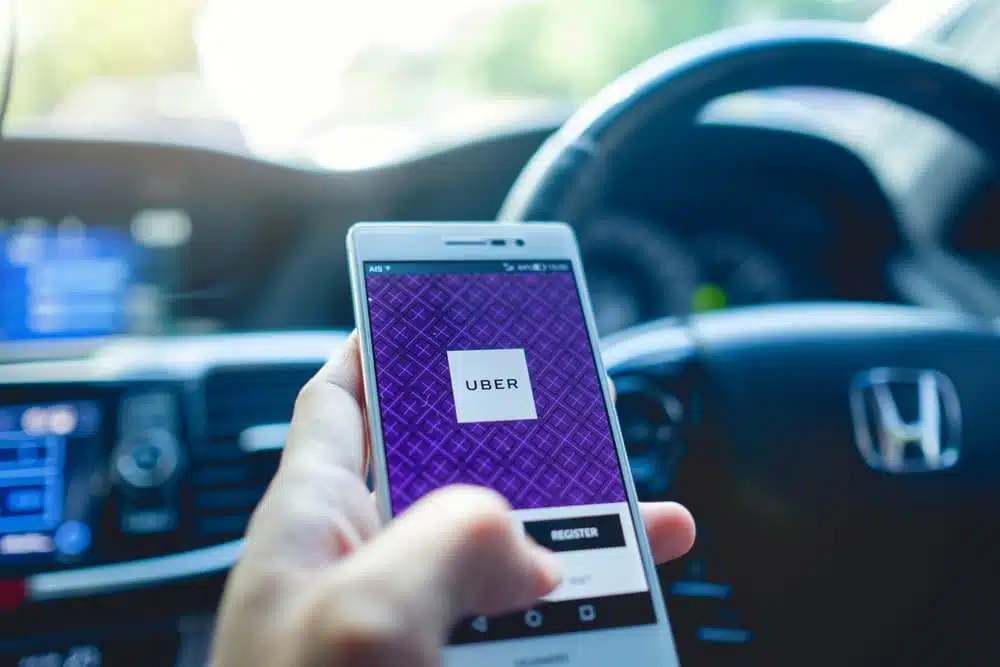
Ridesharing services like Uber and Lyft have revolutionized the way people travel, offering a convenient and affordable alternative to traditional taxis. With millions of rides taken each day, these platforms have become an integral part of modern transportation. However, as with any mode of travel, accidents can happen, and when they do, you must know what to do to protect your rights to compensation.
Did you know that Uber and Lyft both have $1 million umbrella policies when accidents occur in their vehicles? However, the $1 million policy is typically reserved for accidents that occur while a passenger is in the vehicle or when the driver is on route to pick up a passenger after accepting a ride request. If the accident happens during this period, and the damages exceed the limits of the driver’s personal insurance policy and the ridesharing company’s primary liability coverage, then the $1 million umbrella policy can come into play.
However, accessing this coverage involves dealing with multiple insurance companies and demonstrating that the damages warrant such a significant payout.
This is where having an experienced rideshare lawyer can make a substantial difference.
Your car accident attorney can help you navigate the claims process, gather the necessary evidence to support your case and negotiate with the insurance companies to ensure that you receive the full compensation you are entitled to under the umbrella policy. They can also help you explore other avenues of compensation if the umbrella policy cannot cover your damages.
Determining Liability in an Uber or Lyft Accident
One of the most critical factors in an Uber or Lyft accident lawsuit is determining who you can hold liable for the damages. Liability largely depends on how the ridesharing company classifies its drivers. Uber and Lyft currently classify their drivers as independent contractors rather than employees. This classification has significant implications for liability after an accident.
If the drivers were employees, you could hold the ridesharing company liable for their actions while on the job, such as accidents caused by the driver’s negligence. However, the company limits liability by classifying drivers as independent contractors. In many cases, the driver’s personal auto insurance policy will provide the primary coverage for accidents that occur while the driver is not actively engaged in a ride or on-route to pick up a passenger.
Even if the driver is an independent contractor, the ridesharing company may still bear some responsibility, especially if they were negligent in their hiring or background check processes, or if they failed to enforce safety standards for their drivers.
Uber and Lyft’s Insurance Policies
Both Uber and Lyft provide insurance coverage for their drivers, but the extent of the coverage depends on the stage of the ride at the time of the accident.
The companies typically divide the ride into three stages:
- Waiting for a ride request: If the driver is logged into the app but has yet to accept a ride request, their personal auto insurance policy will be the primary coverage. Uber and Lyft may provide contingent liability coverage if the driver’s personal policy doesn’t apply.
- Accepting a ride request and driving to pick up the passenger: Once the driver accepts a ride request, Uber and Lyft’s insurance policies kick in. These policies typically provide liability coverage of up to $50,000 per person, $100,000 per accident, and $25,000 for property damage.
- Transporting the passenger to their destination: While the passenger is in the car, Uber and Lyft provide $1 million in liability coverage, as well as uninsured/underinsured motorist coverage and contingent comprehensive and collision coverage.
Both companies also have umbrella policies that can provide additional coverage if the damages exceed the primary policy’s limits. Your attorney can help you understand these insurance policies and how they apply to your specific situation when filing a lawsuit.
Steps to File a Lawsuit After an Uber or Lyft Accident
If you’re in an accident while using Uber or Lyft, either as a passenger or as another driver on the road, to protect your legal rights and strengthen your case:
- Seek medical attention and document your injuries: Your health should be your top priority. Seek medical treatment and keep detailed records of your injuries, treatment, and expenses.
- Report the accident to the police and the ridesharing company: Call the police to file an official report and inform Uber or Lyft of the accident through their app or customer support.
- Gather evidence: If you’re not badly hurt, take photos of the accident scene, damage to the vehicles, and any visible injuries. Collect contact information from witnesses and obtain a copy of the police report. If you can’t take this step, don’t worry. Your rideshare accident attorney can do it for you.
- Contact a rideshare accident lawyer: An experienced attorney can help you navigate the complex legal process, determine liability, and fight for fair compensation. They’ll investigate your rideshare accident, gather evidence, build a case, and negotiate with Uber and Lyft for maximum compensation.
- File a claim with the appropriate insurance company: Your lawyer will help you file a claim with the driver’s personal insurance, the ridesharing company’s insurance, or both, depending on the circumstances of the accident.
- Negotiate a settlement or proceed with a lawsuit: Your attorney will negotiate with the insurance companies to reach a fair settlement. If a settlement cannot be reached, your lawyer will guide you through the process of filing a lawsuit.
Challenges in Uber and Lyft Accident Lawsuits
Filing a lawsuit after an Uber or Lyft accident isn’t easy and obstacles may arise when negotiating with ridesharing services. These challenges can make it difficult for accident victims to obtain the compensation they deserve, which is why you need an experienced personal injury lawyer on your side.
An experienced injury attorney can help by investigating the accident and gathering evidence to demonstrate that the ridesharing company was negligent in some way.
Another significant challenge in Uber and Lyft accident lawsuits is dealing with multiple insurance companies. A typical accident involving a ridesharing driver may involve several insurance policies, including the driver’s personal auto insurance, the ridesharing company’s insurance, and potentially even the passenger’s own insurance. Each of these insurance companies will have its own interests and may shift blame or minimize payouts to protect their bottom lines.
Navigating this complex web of insurance policies can create a series of daunting tasks for accident victims, especially when they are already dealing with the physical, emotional, and financial fallout of the accident.
An experienced rideshare accident lawyer can communicate with the various insurance companies on your behalf, identifying and pursuing all relevant policies, and fighting for a fair settlement that covers all of your damages.
Uber and Lyft accidents can involve multiple parties, insurance policies, and legal considerations. Determining liability and insurance coverage is difficult after a rideshare accident.
For this reason, you need an experienced rideshare accident attorney in your corner after a crash. Your lawyer will guide you through the process of filing a claim, negotiating with insurance companies, and, if necessary, pursuing a lawsuit to secure the compensation you deserve. Remember, taking swift action and having the right legal representation can make all the difference in the outcome of your case.
Why Do Uber and Lyft Accidents Occur?
According to a study by the University of Chicago and Rice University, the introduction of ridesharing services in a city can lead to a 2-3% increase in the number of fatal traffic accidents. This translates to an additional 987 fatalities per year in the United States. Why do these accidents occur?
Distracted Driving
One of the most common causes of Uber and Lyft accidents is distracted driving. Ridesharing drivers rely heavily on their smartphones to navigate, communicate with passengers, and accept new ride requests. This constant interaction with the app can take their attention away from the road, increasing the risk of accidents. Distracted driving can include not only using the app but also texting, eating, or engaging in other activities that divert the driver’s focus from driving.
A study by the National Safety Council found that 55% of rideshare drivers admitted to using their smartphones while driving, compared to 38% of other drivers. This suggests that rideshare drivers may be more prone to distracted driving than the general population.
Another study by the National Safety Council found that 40% of rideshare passengers reported feeling uncomfortable or unsafe due to their driver’s use of a smartphone while driving.
Driver Fatigue
Another significant factor contributing to Uber and Lyft accidents is driver fatigue. Many ridesharing drivers work long hours, often late at night or early in the morning, to maximize their earnings.
This can lead to drowsiness and impaired judgment behind the wheel, especially if the driver is not taking sufficient breaks or getting enough rest between shifts. Fatigue-related accidents are particularly concerning, as they can result in serious injuries or fatalities.
A study by the American Academy of Sleep Medicine found that nearly half of rideshare drivers reported experiencing drowsiness while driving, with 26.4% reporting that they had difficulty staying awake while driving at least once a week.
Inexperience
Inexperience or lack of proper training among ridesharing drivers can also contribute to accidents. While Uber and Lyft have certain requirements for their drivers, such as a valid driver’s license and a clean driving record, they may not provide comprehensive training on defensive driving techniques, handling difficult traffic situations, or properly maintaining their vehicles. This lack of experience and training can make ridesharing drivers more prone to accidents, especially in challenging driving conditions.
Vehicle Maintenance
Vehicle maintenance issues are another potential cause of Uber and Lyft accidents. Ridesharing drivers are responsible for maintaining their own vehicles, and some may neglect regular maintenance or delay necessary repairs to save money.
This can lead to mechanical failures, such as brake problems or tire blowouts, which can cause accidents. Additionally, some drivers may use older or less reliable vehicles that are more prone to breakdowns or malfunctions.

Allen L. Rothenberg, Esq., Car Accident Lawyer
If you or a loved one was in an Uber or Lyft accident, we can help. At Rothenberg Law Firm LLP, our team of skilled personal injury lawyers has extensive experience handling personal injury cases, including those involving rideshare services like Uber and Lyft.
We recognize the unique challenges that rideshare accident victims face, such as determining liability, navigating multiple insurance policies, and dealing with the rideshare companies’ legal teams. Our attorneys are well-versed in the laws and regulations surrounding rideshare services and will work tirelessly to protect your rights and pursue the compensation you deserve.
We also understand the physical, emotional, and financial toll that a rideshare accident can take on you and your family. That’s why we are committed to providing compassionate, personalized legal service and keeping you informed throughout the entire process.
If you or a loved one have been involved in an Uber or Lyft accident, don’t wait to seek legal assistance. Contact Rothenberg Law Firm LLP today at (800) 624-8888 or through our online form for a free, no-obligation consultation. Our experienced rideshare accident attorneys are ready to help you navigate this challenging time and fight for the compensation you deserve.



